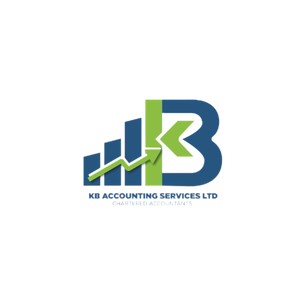
As a business owner, you need to wear several hats. Your tasks will range from marketing your brand to hiring the right people to maintaining relationships with your customers. You’ll also need to keep track of your profits and business accounting.
Accounting is probably not your passion, but keeping your books organized is crucial for your business. Accounting is the language of business that speaks about financial growth. It translates numbers into a comprehensible statement about business profitability.
Typically, accounting involves the process of recording, summarizing, analyzing and recording of financial transactions of a business. This can be difficult in itself, but there are other common financial obstacles small business owners must overcome. In this article we will look into the basics of accounting and also some of the top accounting challenges entrepreneurs must deal with, and how to overcome them. It also forms solutions a research conducted by American bank on why businesses fail. (If you missed the introductory part, businesses fail because of poor financial planning, poor business plan, poor marketing and poor management)
This explanation of accounting basics will introduce you to some basic accounting principles, accounting concepts, and accounting terminology. Once you become familiar with some of these terms and concepts, you will feel comfortable navigating through the explanations, quizzes, puzzles, and other terminologies which are used in accounting on daily basis. Despite ones background, accounting is the most important part of business for every entrepreneur regardless of how big the business is.
Some of the simple accounting terms that you will come across include revenues, expenses, assets, liabilities, income statement, balance sheet, and statement of cash flows. You will become conversant with accounting debits and credits as we demonstrate you how to record transactions. You will also appreciate why two basic accounting principles, the revenue recognition principle and the matching principle, assure that a company’s income statement reports a company’s profitability.
In this elucidation of accounting basics, we will often omit some accounting details and complexities in order to present clear and concise explanations. This means that you should always seek professional advice for your specific circumstances.
A Story for Relating to Accounting Basics
Let’s start by presenting the basics of accounting through a story of a person who wants to start a new business. The person is Robert, who sees the need for a parcel delivery service in his community. Robert has conducted a well versed research of his idea and has come up with a business plan (Business Plan will tackled in our subsequent articles) that documents the feasibility of his new business.
Robert has also met with authorities from government business registration office to discuss the form of business he should use. Given his specific situation, they concluded that a corporation will be best. Robert decides that the name for his corporation will be Direct Delivery Ltd. The authorities also advises Robert on the various permits and government identification numbers that will be needed for the new corporation.
Robert is a hard worker and a smart man, but admits he is not comfortable with matters of accounting. He assumes he will use some accounting system to record his company’s daily transactions, but wishes to meet with a professional accountant before making his selection. He asks his friend to recommend a professional accountant who is also skilled in explaining accounting to someone without an accounting background. Robert wants to understand the financial statements and wants to keep on top of his new business.
At his first meeting with an Accountant, Robert asks for an overview of accounting, financial statements, and the need for accounting system. Based on Robert’s business plan, Robert sees that there will likely be thousands of transactions each year. The Accountant states that accounting system (software) will allow for the electronic recording, storing, and retrieval of those many transactions. Accounting software will permit Robert to generate the financial statements and other reports that he will need for running his business.
Just like everyone else who does not understand accounting, Robert seems puzzled by the term transaction, so the Accountant gives him five examples of transactions that Direct Delivery, Inc. will need to record:
- Robert will no doubt start his business by putting some of his own personal money into it. In effect, he is buying shares of Direct Delivery’s common stock.
- Direct Delivery will need to buy a sturdy, dependable delivery vehicle.
- The business will begin earning fees and billing clients for delivering their parcels.
- The business will be collecting the fees that were earned.
- The business will incur expenses in operating the business, such as a salary for Robert, expenses associated with the delivery vehicle, advertising, etc.
With thousands of such transactions in a given year, Robert has decided to start using accounting software right from the beginning. Accounting software will generate sales invoices and accounting entries simultaneously, prepare statements for customers with no additional work, write checks, automatically update accounting records, etc.
By getting into the habit of entering all of the day’s business transactions into his computer, Robert will be rewarded with fast and easy access to the specific information he will need to make sound business decisions. The Accountant tells Robert that accounting “transaction approach” is useful, reliable, and informative. Accountants meet small business owners who think it is enough to simply “know” their company made MK5, 000, 000 during the year (based only on the fact that it owns MK5, 000, 000 more than it did on January 1). Those are the people who start off on the wrong foot and end up in consulting offices looking for financial advice.
If Robert enters all of Direct Delivery’s transactions into his computer, good accounting software will allow Robert to print out his financial statements with a click of a button. This is simply automated system. As a business owner, you need to understand accounting. In Part 2, we go straight into what can go wrong if you don’t understand accounting of your business.
(Your feedback is welcome)
To be continued……
